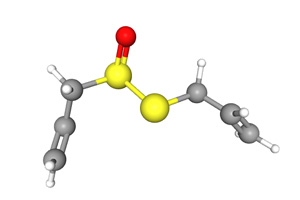Health Benefits of Garlic
Garlic, also known as Allium sativum, has been used for centuries not only as a flavoring agent in cooking but also as a medicinal herb for a wide range of health issues. Garlic originated in West China and has been used for its health qualities since 2600 bc. Garlic belongs to the onion family and contains sulfur compounds such as allicin, which is responsible for its distinct odor and flavor, as well as its numerous health benefits. In this article, we will explore some of the health benefits of garlic and how it can improve your overall well-being.
1. Boosts immune system
Garlic has immune-boosting properties due to its high concentration of antioxidants, which help to fight off harmful bacteria and viruses. A study published in the journal Clinical Nutrition found that taking a garlic supplement daily can help to reduce the frequency and duration of colds and flu.
2. Lowers blood pressure
Garlic has been shown to lower blood pressure, which can help to reduce the risk of heart disease and stroke. A study published in the Journal of Agricultural and Food Chemistry found that garlic extract can significantly reduce both systolic and diastolic blood pressure in people with high blood pressure.
3. Reduces cholesterol levels
Garlic has been shown to lower cholesterol levels, particularly LDL or "bad" cholesterol. A meta-analysis of 39 clinical trials published in the Journal of Nutrition found that garlic supplements can reduce total cholesterol levels by an average of 17 mg/dL and LDL cholesterol by an average of 9 mg/dL.
4. Improves brain function
Garlic contains antioxidants that help to protect the brain from oxidative damage, which can lead to cognitive decline and Alzheimer's disease. A study published in the Journal of Neurochemistry found that garlic extract can improve memory function in rats with Alzheimer's disease.
5. Has anti-inflammatory properties
Garlic has anti-inflammatory properties that can help to reduce inflammation in the body. Chronic inflammation is linked to a wide range of health issues, including heart disease, diabetes, and cancer. A study published in the journal Phytotherapy Research found that garlic extract can reduce markers of inflammation in people with metabolic syndrome.
6. Prevents cancer
Garlic has been shown to have anti-cancer properties due to its high concentration of sulfur compounds. A meta-analysis of 19 studies published in the journal Cancer Prevention Research found that garlic intake was associated with a reduced risk of certain types of cancer, including stomach and colon cancer.
7.Treats fungal infections
Garlic has antifungal properties that can help to treat fungal infections
8. Improves digestion
Garlic has been used for centuries to improve digestion and relieve gastrointestinal problems. A study published in the journal Food Science and Human Wellness found that garlic extracts improved the function of the digestive system and reduced inflammation in the gut.
In conclusion, garlic is a potent herb with numerous health benefits. Regular consumption of garlic or garlic supplements can help lower blood pressure, reduce cholesterol levels, boost immune function, prevent cancer, reduce inflammation, and improve digestion. However, it is important to consult a healthcare professional before adding garlic supplements to your diet, especially if you are taking medication or have a medical condition.
The Active Ingredient in Garlic is the Allicin Molecule

Allicin is a sulfur-containing compound that is found in garlic (Allium sativum). It is responsible for the distinctive smell and taste of garlic, as well as many of its health benefits. Allicin is formed when the enzyme alliinase converts the amino acid alliin into allicin, which is released when garlic cloves are crushed, chopped or chewed.
The allicin molecule has a chemical formula of C6H10OS2 and a molecular weight of 162.26 g/mol. It is a relatively unstable molecule that quickly breaks down into other sulfur-containing compounds, such as diallyl disulfide and ajoene. Allicin is believed to have antimicrobial, antioxidant, and anti-inflammatory properties, and it may also help lower blood pressure and cholesterol levels. However, more research is needed to fully understand its health benefits and potential side effects.
Readings and Sources:
Garlic: a review of potential therapeutic effects 2014
Revealing the Therapeutic Uses of Garlic (Allium sativum) and Its Potential for Drug Discovery 2021
Science of Cooking
See also:
- How can dried Shitake mushrooms be more flavorful than fresh mushrooms
- Adding Flavor by using Umami
- Artificial Sweeteners
- Science of Culinary Foams
- Food Thickening Agents
- What is Sous Vide Cooking
- What are Polysaccharides?
- Xanthan Gum
- Guar Gum vs. Locust Bean Gum
- Agar Molecular Properties in Cooking
- Pectin
- Science of Hydrocolloids in Cooking
Health Risks in Cooking
- What are Trans Fats?
- What is lactose intolerance?
- What is the difference between LDL and HDL?
- What are the different types of Omega-3 fatty acids?
- What is the difference between nitrates and nitrites?
- What is the difference between saturated and unsaturated fats?
- Why is Carbon Monoxide used in meat and fish?
- All about gluten sensitivity and issues with lectins